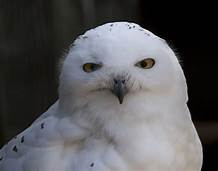Can an Owl Be a Pet?
With their big, round eyes and striking plumage, owls are undeniably captivating creatures. It's no wonder why many people consider keeping one as a pet. However, before you bring an owl into your home, it's crucial to understand the unique challenges and responsibilities that come with owning one of these wild birds.

Lifespan and Care
Owls are not domesticated animals and may live for 10 to 40 years in captivity. This means a long-term commitment and a significant investment of time and resources. Additionally, owls require specialized care, including a diet of live prey, access to outdoor space, and regular checkups with a veterinarian who specializes in exotic birds.
Legal Considerations
Depending on where you live, it may be illegal to own an owl as a pet. Some species are protected by local and federal laws. Researching your local regulations and obtaining any necessary permits or licenses is essential before acquiring an owl.
Safety and Training
Owls are wild predators with powerful talons and beaks. Proper training and handling are necessary to ensure both the owl's safety and yours. Working with an experienced falconer or owl rehabilitator can help you learn how to safely interact with your feathered friend.
Behavior and Socialization
In the wild, owls are solitary creatures. As pets, they can be independent and may not interact with humans in the same way as traditional companion animals. Owls also have specific behaviors, such as vocalizations and nocturnal activity, that may not mesh well with your lifestyle.
Nutrition and Diet
Owls are carnivores and require a diet consisting of live prey, such as rodents, insects, and small birds. This can be challenging to arrange and expensive to maintain. Additionally, you need to be comfortable handling and preparing live animals for your owl's meals.
Owning an owl as a pet is a significant undertaking that requires careful consideration and a deep understanding of these magnificent creatures' needs. Before making a decision, weigh the responsibilities and challenges against your lifestyle, budget, and ability to provide the specialized care an owl requires. With proper research, training, and dedication, it is possible to create a mutually enriching relationship with your owl companion, but it's essential to remember that owls are wild animals and may never fully adapt to captivity.
Declaration: All article resources on this website, unless otherwise specified or labeled, are collected from online resources. If the content on this website infringes on the legitimate rights and interests of the original author, you can contact this website to delete it.



